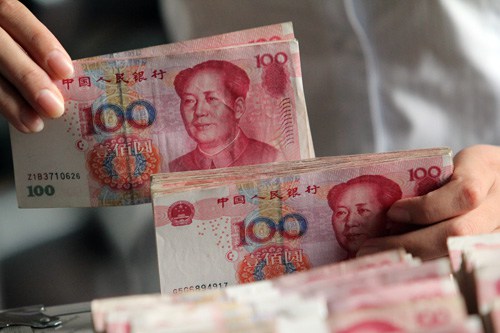China rates cut not to plunge yuan
(Xinhua) Updated: 2014-11-26 09:35
|
 |
|
A clerk from a rural credit cooperative in Linyi, Shandong Province, counts banknotes, Jan 6, 2014. [Photo/bjreview.com.cn] |
BEIJING - The Chinese yuan will not drop significantly amid interest rate cuts, with impacts of declining yields offset by increasing trade surplus and dwindling worry over financial stability.
China's move to cut lending rate by 0.4 percent, at the backdrop of the ending of the US QE, may make yuan-denominated assets less attractive to international investors who already see an end to the yuan's single-way appreciation.
A depreciation trend caused by the narrowing disparity between domestic and overseas interest rates will then spur more sales of yuan products, pressuring the currency to further go down.
The scenario, however, is only likely to happen after additional rounds of interest rate cuts and the increase in interest rates in the United States.
Ding Shuang, senior China economist at Citibank, said he expects the Chinese yuan to weaken slightly against the US dollar by the end of next year after the forecast of two more rounds of rates cut in China and the rates increases in the United States.
"The yuan will depreciate after additional rates cuts. Without more cuts of interest rates next year, the yuan will not go down against the dollar," Ding said.
He believes the yuan, pressured by possible capital outflows, may only weaken against the strong US dollar but appreciate against other currencies.
While currency depreciation is a common option to boost growth, China is unlikely to employ the policy even after its GDP growth slid to a five-year low in the third quarter.
"The Chinese government will never use the depreciation of yuan to prop up economic growth," said Chang Jian, Barclays Chief China Economist.
China's resolve to internationalize its currency will make the Chinese yuan stay stable at the current level, Chang said.
Liu Linan, senior strategist at Deutsche Bank, said there is no need to worry about capital outflows, as increasing trade surplus, partially boosted by the US recovery, will support Chinese yuan. "The current account will play a bigger role," she added.
Liu believes the Chinese yuan will maintain a comparable exchange rate next year, with some two-way fluctuations, since slower GDP growth will also prevent the yuan from appreciating.
In the short-term this round of interest rates cut may help, not hinder, to rally yuan appreciation as the move sends a clear signal that the Chinese government will act strongly to maintain economic growth at a relatively fast pace.
While noting the yuan may be less attractive from a yield perspective, Nomura believes the interest rates cut will be a near-term positive for the yuan, as the cut reduces growth slowdown concerns as well as the associated risk of capital flight.
- Cash crunch fans expectation on RRR cut
- US extends antidumping duties on China's thermal paper
- Modern food van with ancient look in Shanghai
- China home prices continue to cool in November
- Asia's top 3 billionaires all Chinese
- Old investment remedy the treatment for China's "new normal"
- China's solar sector opposes US anti-dumping ruling
- BMW to recall 846 cars in China
















